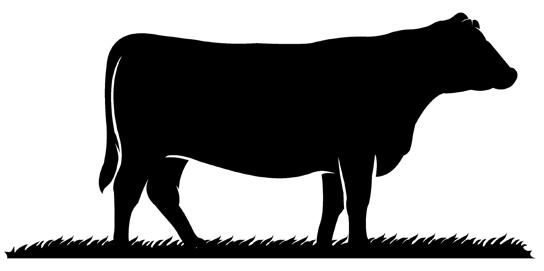
5 minute read
conscious eating
Heartfelt Eating
Best Foods for a Heart-Healthy Diet
by April Thompson
Hypertension affects nearly half of all Americans, increasing the risk for heart disease and stroke, the leading cause of death. We can help mitigate that risk and have a healthy “change of heart” by revamping our diets.
While food fads are constantly changing, the basics of a heart-healthy diet have not, says Cheryl Strachan, a registered dietitian in Calgary, Canada, and founder of SweetSpotNutrition.ca. Strachan notes the Dietary Approaches to Stop Hypertension (DASH) diet has been used to help lower blood pressure and with other heart disease risk factors since its development in the 1990s. The DASH diet is rich in fruits, vegetables, whole grains, nuts, beans and lowfat dairy foods. While it includes lean meat, fish and poultry, it limits sugary foods and fatty meats.
The Mediterranean diet, says Strachan, is another proven regimen for heart health, citing a five-year Spanish study in The New England Journal of Medicine that found the incidence of cardiovascular events was 30 percent lower among participants on this diet, supplemented with extra-virgin olive oil or nuts, compared to those assigned a reduced-fat diet.
A Mediterranean diet doesn’t necessarily mean eating dishes specific to that region. “It’s the type of foods that matters: a largely plant-based diet focused on whole grains such as the bulgur in tabouli, legumes, nuts, seeds, olive oil
PURE PASTURES

Local Farm Fresh Fare / Michigan Made Products
— Your One-Stop Shop for Healthy Meats & More! Visit PurePasturesMI.com for More Info — Weekly Specials • Free Home Delivery • Two Convenient Locations Local, Free Range, Pasture Raised, and Grass Fed Offerings, Including:
• Beef • Chicken • Buffalo • Venison
• Pork • Turkey • Lamb • Rabbit • Duck • Elk • • • • • • • Pastured, Non-GMO Eggs Great Lakes Fish Local Honey & Maple Syrup Paleo-Friendly/Gluten-Free Selections Organic, Grass-Fed Dairy Products Large Cheese Selection Beef, Chicken & Buffalo Bones for all • your Bone Broth Needs Wild-Caught Scallops & Shrimp,
Flounder & Cod, Salmon (Sockeye,
Coho & Chinook). • No Gill Nets • No Farmed Fish
and some animal products like fish, poultry and dairy,” says Strachan.
Michael Greger, a Seattle physician and author of the bestseller How Not to Die, disagrees that meat-based proteins have a place in a heart-healthy diet. “Only one way of eating has ever been proven to reverse heart disease in the majority of patients: a diet centered around whole-plant foods,” says Greger, adding that the most critical risk factor is elevated LDL cholesterol. “To drastically reduce LDL cholesterol levels, we need to drastically reduce our intake of trans fat, which comes from processed foods and naturally from meat and dairy; saturated fat, found mainly in animal products and junk foods; and playing a lesser role, dietary cholesterol, found exclusively in animal-derived foods, especially eggs.”
Michelle Routhenstein, a preventive cardiology dietitian and owner of Entirely Nourished, a nutrition counseling practice in New York City, likes to meet clients where they are rather than trying to force a drastic switch they can’t maintain. “Often, people get very broad advice, like ‘Adopt a plant-based diet,’ but when it comes to the heart, you have to find a way of eating you can commit to long term. I start by asking what foods bring them joy, as well as their food dislikes, history and culture.”
For Routhenstein, an optimal diet for the heart includes a healthy balance of good fats, lean protein and the complex carbs that are important sources of fiber. “Research has shown that every additional 10 grams of fiber per day can decrease the risk of coronary heart disease by as much as 25 percent,” by helping the body remove excess cholesterol, says the dietitian and author of The Truly Easy Heart-Healthy Cookbook: Fuss-Free, Flavorful, Low-Sodium Meals. While fatty foods are sometimes scapegoated for poor health, unsaturated fats are “really good for blood vessel health,” she adds.
Nutrients for Heart Health
Potassium is a key mineral for heart health, as it can help the body remove excess sodium, lower blood pressure and improve blood flow and blood vessel health. Yet research shows less than 2 percent of Americans get enough. Beans, sweet potatoes, lentils, beets and avocados are among many potassium-rich foods with multiple heart benefits.
There is a growing awareness of the importance of inflammation-fighting omega-3 fatty acids, particularly in fish like wild salmon, arctic char and sardines. Routhenstein also advocates omega-9 fatty acids such as in tahini and avocado. Omega-9s have been shown to help increase HDL “good” cholesterol and decrease LDL “bad” cholesterol while protecting blood vessel health.
Heart attacks often seem to occur suddenly simply because the damage happens gradually and quietly, warns Routhenstein. “Heart disease is progressive, so over time a poor lifestyle and diet can damage blood vessels and accelerate hardening of the arteries that lead to heart attacks,” she warns. “Some damage may not be entirely reversible, but it’s never too late to optimize heart functioning.”
Connect with Washington, D.C., freelance writer April Thompson at AprilWrites.com.

Discover the Healer in You!
Better Your life and the Lives of Your Family and Friends through the Power of Herbs.

Take Your Passion to the Next Level.
Sign up for our essential class on medicinal herbs and their healing properties. Learn how to select them and make remedies based on body systems.
~ Herbs that Heal ~
There is nothing like nature’s medicine and the healing power of herbs. Become a Certified Herbalist. Learn the role of herbs as foods and medicines throughout history. In this class, you will gain a deeper understanding of the body systems and conditions that herbs affect, the most effective way to use them whether that be by teas, extracts, poultices, ointments or powdered capsules. This class is an excellent place to start for people new to herbal studies and usage or for those who want to expand their working knowledge of herbs. Wholistic Training Institute is a State of Michigan Licensed Proprietary School.

Wholistic Training Institute
20954 Grand River Ave, Detroit Call Today! (313) 255-6155 WholisticTrainingInstitute.com







